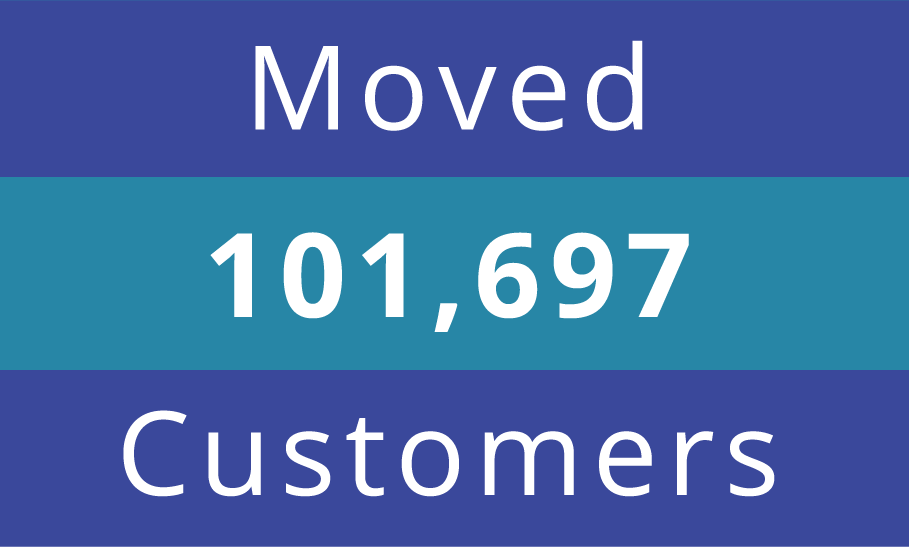Top Things to Know Before Moving to Germany
Germany is a beautiful country located in central Europe, well known for it’s interesting history, delicious food and beer, classical music, mountains, forests and much more! Birthplace to important historical figures such as Gutenberg, Bach, Goeth, Einstein and Beethoven, Germany is rich in culture, history and architecture with a diverse landscape. The country also holds ‘Oktoberfest’ one of the most famous festivals in the world, which brings people together to enjoy its culture, recipes and wine.
Not only is Germany Europe’s largest economy, it is also the strongest. With a population of 81 million, Germany has one of the lowest rates of unemployment at only 5.2% and because of this the job market is very competitive. The rate at which you find a job depends on where you are from, skills and qualifications and the area that you are looking to relocate to. It’s worth taking note that those relocating to Germany from within the EU do not need to apply for a work permit to take up employment.
There are a number of global recruitment agencies such as Manpower and Hays that feature job vacancies in Germany.
Getting your qualification recognised in Germany could prove extremely advantageous, especially if you have a particular trade or profession, however for positions such as doctors and dentists, it is a requirement.
The average working week is 38 hours and when it comes to work, Germans have particularly high and defined cultural standards that can often leave expats overwhelmed. German businesses abide by many regulations and processes; everything is conducted in the form of a contract or written agreement, while this leaves little to no room for flexibility, it displays a consistently high degree of mutual obligation. Punctuality is strictly adhered to as is considered good manners. They also have a culture of communicating in a very direct manner; many expats can often misconstrue this as rude or abrupt, but it is not meant in that manner.
It is a mandatory requirement to register at the local Einwohnermeldeamt (registration office) within 7 days of you arriving in Germany if you plan to stay in the country for longer than 3 months. You will need to provide the following documentation – passport, proof of address and marriage certificate, although these documents may differ between regions; it is all worth researching whether fees are applied too. For tax purposes, you will need to obtain an income tax card, called a Lohnsteuerkarte which will state your tax number – you will need to provide this to your employer.
Once you have registered at the Einwohnermeldeamt you will be able to open a bank account, like in the UK, a current account ‘Girokonto’ is the most common type of account and they have similar facilities attached such as free cash withdrawals from most machines, direct debit and standing order set up. Be prepared to take the following documentation with you; passport, proof of registration, letter from your employer, last 3 pay slips – but it is worth checking with the bank exactly what they require as it varies.
Germans are very community minded and take great pride the areas that they live; there are often neighbourhood restrictions and regulation that will have never previously come across, such as designated times in which loud music can be played or when hoovering isn’t allowed! Many German families live in apartments, if you will be in an apartment block then you may be expected to contribute to the cleanliness and upkeep of communal areas and will be provided with a schedule.
You will need to hold a EHIC before you travel to Germany, this is valid between 3 – 5 years and will provide ensure that you receive a treatment that is given to Germans with insurance.
If you are staying in Germany long term and working, you will need to register with a health insurance company or ‘Krankenkasse’; this is commonly arranged through your employer but it was worth confirming whether you need to contact the insurance company yourself or if they will do it on your behalf. There is state health insurance and private health insurance available in Germany, and regardless of which option you choose, your employer will contribute to half the costs while the other half is deducted straight from your salary, you also make contributions to your social security through the Krankenkasse along with your employer of which the rates are set by the German government.
Once you are paying contributions to the Krankenkasse, you will receive your Health Insurance card along with your social security number; each time you visit your doctor, you are required to show your health insurance card. Prescriptions work far differently to the UK, once you have your prescription filled, you send it to the Krankenkasse for re-imbursement, full details for the reimbursement will be provided by them when you apply– so be sure to read these thoroughly.
The German education system produces high performing students; the international schools in Germany tend to still teach in German, however there are some schools that teach lessons in English. Germany’s international schools are known for their modern approach to education, introducing students to technology along with great sports programs, and due to this they tend to command relatively high fees.
Between the ages of 3 and 6 children may attend a preschool or kindergarten, after this school is compulsory until 16. Up until the 4th grade children are taught together for all subjects in a Grundschule, after the 4th grade they will attend one of 3 schools depending on their academic ability, recommend by their teacher at Grundschule or chosen by their family. The 3 schools are known as Hauptschule (slower paced, vocational training), Realschule (average – high academic ability) and Gymnasium (high achieving students – focuses on preparation for University) – in some districts you may come across a Gesamtschule, a comprehensive school similar to an English secondary school.
The German school day differs greatly from those in the UK, it typically starts between 7:15am and 8:30am and ends by 1:30pm with a heavy emphasis on homework.
The ethos of Germany very much takes a ‘work hard, play hard’ stance, so while the customs and culture may at first seem very rigid and restrictive and a high priority is placed on structure and organisation, this provides designated time to relax and celebrate, and personal time is extremely respected; many of the Christian holiday such as Christmas and Easter is celebrated as well as traditional German holidays such as German Unification day and the famous Oktoberfest which lasts for 16-18 days! So as well as living in a clean, proud and hardworking community there will be much revelling to do also!
If you’re planning a move to Germany from the UK contact Reads Removals for a hassle free, smooth transition. We have moved over 100,000 customers throughout the UK, Europe and across the world. If you have any questions or need advice, get in touch with our experts today – we’re here to help you!


